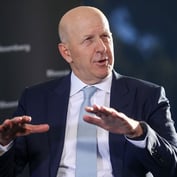By
With the large number of carriers distributing through the brokerage channel, and each carrier having a product portfolio that consists of several different products, it may be near impossible for any broker to fully understand all the products available to his prospective clients, according to those who know the market.
“When you look at the variable annuity market, the challenges that brokers are facing today is product proliferation,” says Charlie Petrizzo, national sales manager for Wachovia Insurance Group, Charlotte, N.C.
Petrizzo explains that he’s been hearing the same message from brokers and at industry meetings. “A lot of people think there’s too much coming out,” he says. “Enough is enough with the riders. There are some great riders, but they mix up the central message of the annuity.”
However, companies continue to develop new products and rider designs to differentiate themselves from other carriers that may be soliciting business from the brokerage channel, industry sources say. And, ironically, the demand for these complex designs are often coming from the field.
“Brokers are always looking for unique product designs,” says Bennett Cooper, a senior consultant with Tillinghast, New York. “People are always looking for differentiation.”
But gaining access to innovative products and actually putting them into use are two different things, notes Bob Wick, a partner at Cramer, Wick and Associates, Davidson, N.C.

“Brokers will ask to have in their portfolio as many products as possible with every state-of-the-art feature available, but they’re going to tend to sell those they’re most familiar with,” says Wick.
“When you go back and look at what is actually sold, you’ll find the basic chassis of the product being sold and not all the new features,” he adds.
Wick feels that in many instances in the brokerage market, product differentiation is a somewhat negligible factor. The product the broker is most comfortable with is the one he will sell, says Wick.
Most industry experts agree that probably more important than special product features and options is the underwriting available.
“Most brokers are looking for creative underwriting service,” says Cooper. Contracting with a number of companies with innovative underwriting programs allows a broker to present the best options available to his client, he says.
In the disability market, Mike Eskra, president and CEO of Eskra and Associates, Coral Gables, Fla., says the first thing they look at is the underwriting. “It depends on what each company’s specialty is,” he says.
“If a guy’s on Prozac, most carriers won’t touch it, but some will–and we’ll go to those carriers to shop the coverage,” he says.
 Roger Bozarth agrees with this approach. “What I look for is the best deal for my client, that’s really what it boils down to.”
Roger Bozarth agrees with this approach. “What I look for is the best deal for my client, that’s really what it boils down to.”
Bozarth, president of The Insurance Advantage, Orlando, Fla., works with 25-30 different companies. “Each one has a different niche–we have some companies that will issue a table 4 risk as standard.”
Bozarth says the biggest challenge is finding out which companies have these special underwriting programs, and keeping current with their latest developments.
“Its just knowing and keeping up with enough of what’s going on in the marketplace to know which companies to narrow it down to,” he says.
Cooper notes that most brokers will have 2 or 3 favorite companies they’ll do most of their business with. “They develop relationships, they learn those products.








 May 05, 2002 at 08:00 PM
May 05, 2002 at 08:00 PM











 Since Bozarth specializes in the senior high net worth market, most of his cases will have some type of health problem, he says. By focusing on this market, he requires these types of carrier relationships to ensure he’s doing what’s right for his client.
Since Bozarth specializes in the senior high net worth market, most of his cases will have some type of health problem, he says. By focusing on this market, he requires these types of carrier relationships to ensure he’s doing what’s right for his client.